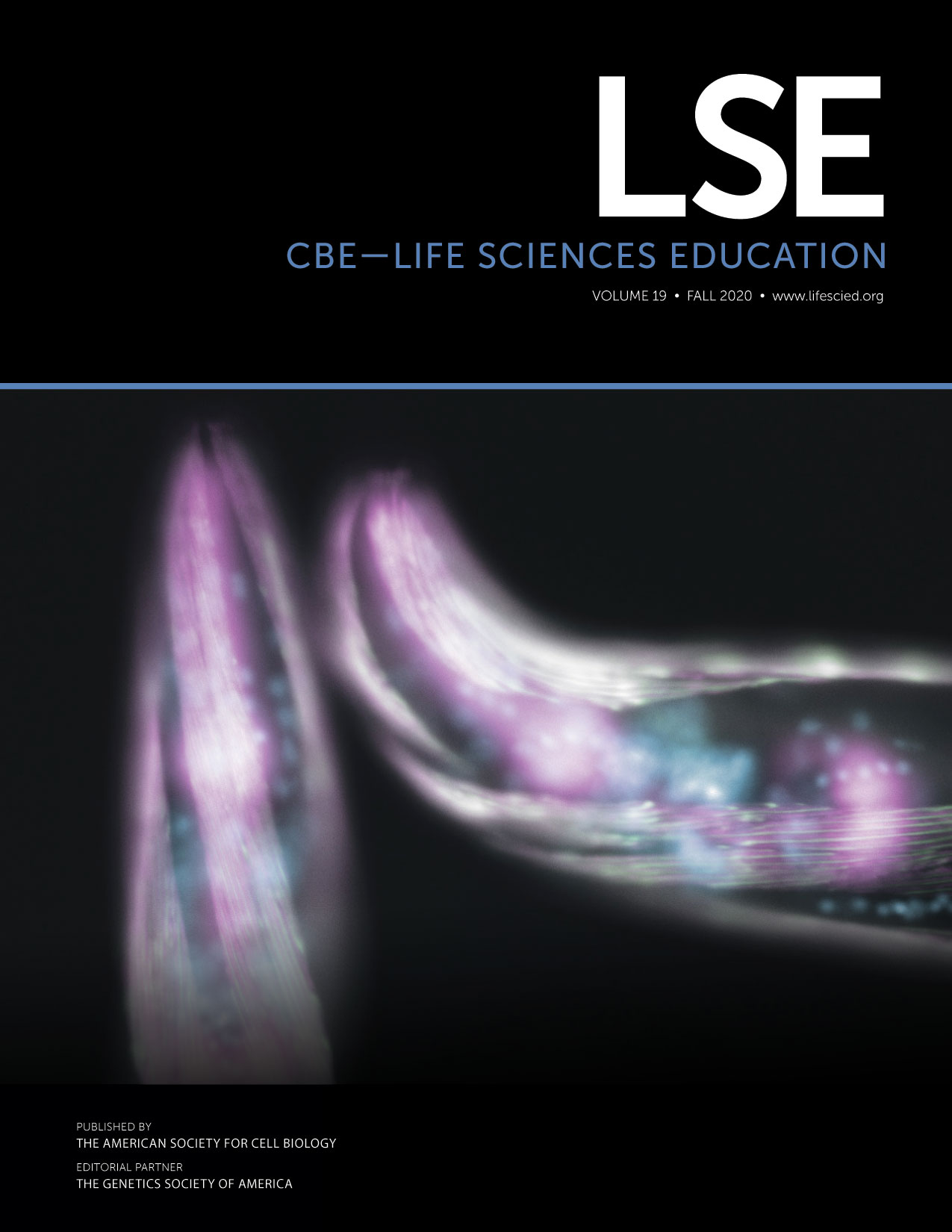Using Framing as a Lens to Understand Context Effects on Expert Reasoning
Abstract
National calls to transform undergraduate classrooms highlight the increasingly interdisciplinary nature of science, technology, engineering, and mathematics (STEM). As biologists, we use principles from chemistry and physics to make sense of the natural world. One might assume that scientists, regardless of discipline, use similar principles, resources, and reasoning to explain crosscutting phenomena. However, the context of complex natural systems can profoundly impact the knowledge activated. In this study, we used the theoretical lens of framing to explore how experts from different disciplines reasoned about a crosscutting phenomenon. Using interviews conducted with faculty (n = 10) in biology, physics, and engineering, we used isomorphic tasks to explore the impact of item context features (i.e., blood or water) on how faculty framed and reasoned about fluid dynamics, a crosscutting concept. While faculty were internally consistent in their reasoning across prompts, biology experts framed fluid dynamics problems differently than experts in physics and engineering and, as a result, used different principles and resources to reach different conclusions. These results have several implications for undergraduate learners who encounter these cross-disciplinary topics in all of their STEM courses. If each curriculum expects students to develop different reasoning strategies, students may struggle to build a coherent, transferable understanding of crosscutting phenomena.



